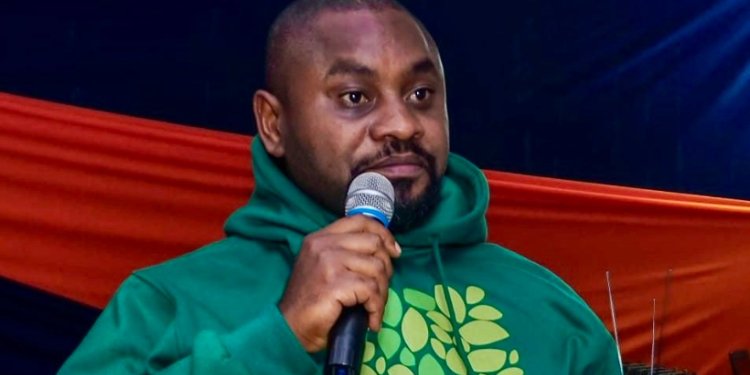
Kenya silent as Ruto critic Mwabili Mwagodi missing in Tanzania
NAIROBI, Kenya July 26 – Kenya’s government is on the spot for its silence on the disappearance of activist Mwabili Mwagodi, who went missing on Tanzanian soil days ago under circumstances suggesting abduction.
The outspoken critic of President William Ruto’s church fundraisers vanished in Dar es Salaam on Wednesday, yet Nairobi has said nothing. Tanzania, too, remains mute.
The continued silence from both governments has ignited fears of a coordinated regional crackdown on dissidents.
Is Kenya complicit in the abduction of one of its own citizens on foreign soil?
Could Mwagodi’s disappearance be part of a growing pattern of East African regimes quietly cooperating to suppress outspoken critics?
These questions are now dominating online discourse, especially among Kenya’s Gen Z-led activist community.
“A Kenyan has been abducted in Tanzania. Again,” said Hussein Khalid, CEO of human rights group VOCAL Africa.
“It seems President Suluhu Samia and her government are working round the clock to target Kenyan activists. Why is President Ruto silent?
Mwagodi, known for spearheading the #OccupyChurch movement against political fundraising in churches, was last seen in Kigamboni, where he worked at Amani Beach Hotel.
His sister, Isabella Kituri, said police refused to take a missing persons report until 24 hours had passed, a delay activists see as suspicious.
His final X post targeted top Kenyan security officials and the president, labeling them “criminals” and urging others to report them to the Directorate of Criminal Investigations (DCI).
That same day, the DCI had unveiled a new crime-reporting WhatsApp number. Shortly after, he vanished.
This is not the first time Kenyan activists have faced danger across the border.
In May 2025, Kenyan activist Boniface Mwangi and Ugandan lawyer Agather Atuhaire were arrested, detained, tortured, and deported from Tanzania under murky circumstances.
The Kenyan government issued a protest, but that may have been mere posturing.
Earlier, civil society leaders like Martha Karua and former Chief Justice Willy Mutunga were denied entry into Tanzania. Others, like Hussein Khalid, were deported.
“There is a clear pattern of cross-border repression,” said Khalid.
“Governments are quietly teaming up to silence critics. Today it’s Mwabili. Tomorrow, it could be any of us.”
Mwagodi’s disappearance has sparked a furious online campaign under the hashtag #FreeMwabiliMwagodi, with thousands demanding accountability from both Kenya and Tanzania.
As both governments remain quiet, civil society organizations are now demanding answers.
The question no one wants to ask but many are now raising is whether Kenya helped facilitate the disappearance.
Could Nairobi be using Tanzanian soil to do what it cannot legally do at home vanish dissenters?
Human rights groups across the region are calling for immediate investigations, even as worry grows that Mwagodi’s case may never be resolved like so many others.
Until both Nairobi and Dodoma break their silence, the suspicion of a coordinated crackdown on East African critics will only deepen.